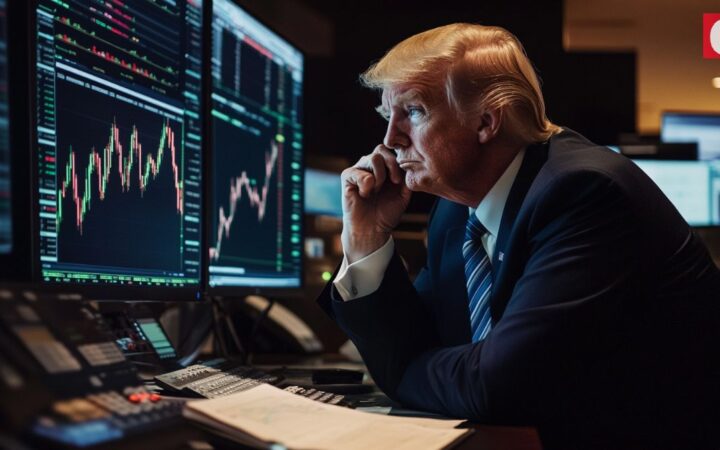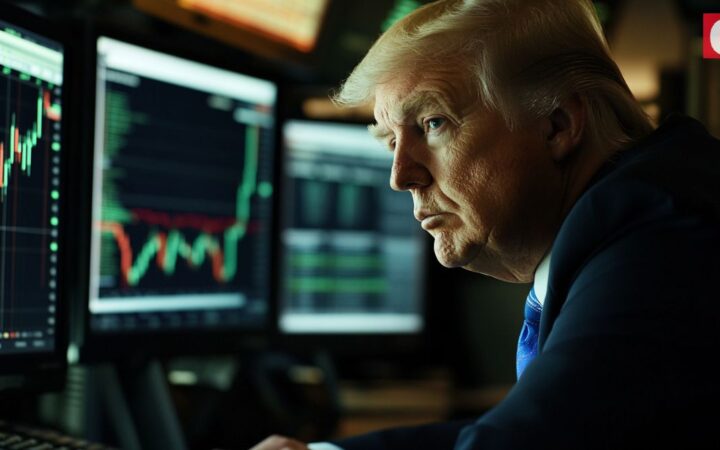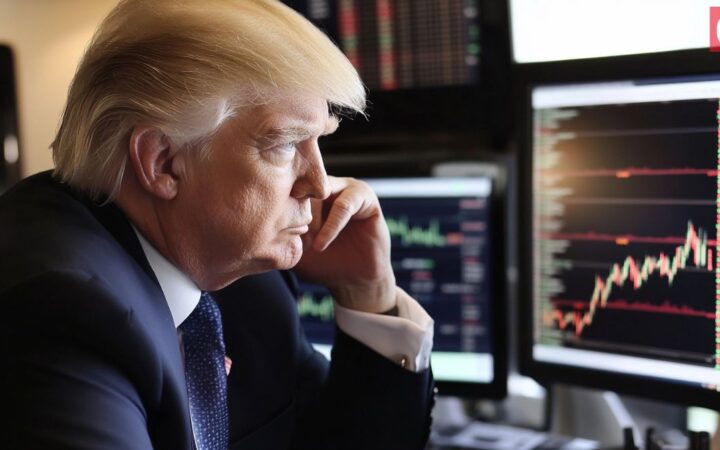The last decade has been defined by the reaction to the Great Recession – with central banks, politicians, and economists grappling with the best way to recover from the worst financial crisis since the dark days of the 1930s.
Yet, while that has naturally meant spending a lot of time looking backwards, could there be trouble ahead? Some forecasters fear that we’re heading into the next big financial crisis and that people should be braced for heavy economic weather ahead.
We Still Haven’t Recovered Properly
Firstly, some believe we’re yet to truly get over the last crash – and that has put the world in a weak position that makes it prone to problems. The IMF, for example, suggests that some reform still remains incomplete to secure the system against future crashes.
David Lipton, the first deputy managing director of the IMF, recently said:
“As we have put it, ‘fix the roof while the sun shines’. But, like many of you, I see storm clouds building and fear the work on crisis prevention is incomplete.”
The Eurozone Crises are a Cause for Concern
The Eurozone is facing turbulence from two different angles – both of which could test the ongoing strength of the project.
The first of those is the looming matter of Brexit. The details of the EU’s future relationship with the UK are still yet to be ironed out – about three years on from the Leave vote – but it’s likely to test the mettle of Brussels however it ends up. The EU is trying to walk a fine line in that it doesn’t want a messy Brexit that damages its economy – but also doesn’t want to roll over and give the UK favorable terms so that others are tempted to follow it out of the door.
If Brexit were the only crisis it would be enough of a headache – yet the pre-existing contradictions in the Eurozone persist. Economist Grace Blakeley recently described the Eurozone as the ‘sick man of the world’. In an essay outlining the potential causes for the next crisis, Blakeley wrote:
“Without structural reforms that promote growth in these economies, the disparity between north and south will only further widen. Over the long term, if unaddressed, this surely can only have one outcome: the break-up of the currency union itself.”
The ‘Trade War’ Could Explode
It’s never a good sign for the global economy when the world’s biggest economic superpowers are at loggerheads. Yet, as things stand, the US and China are on the brink of a full-scale trade war.
So far, tit-for-tat tariffs have been introduced – which has harmed some big names on the Dow Jones – and we’ve reached something of a stand-off, with threats from both sides of worse to come if a solution to the current face-off can’t be found.
There is hope that both sides could back down – and Donald Trump might want to bank a few measures that he could chalk up as a victory ahead of his re-election campaign.
However, predicting Trump isn’t easy – and there’s still a fear that relations could heat up in the coming months and history shows us that conflicts of this nature can cause turmoil.
Debt is Big Issue
In the years since the crash, many countries have racked up considerable debts. Britain’s national debt, for example, is now 82.6% of GDP, more than double the rate when the crisis began a decade ago.
The IMF recently noted that global debt has now reached a record high of $184 trillion in nominal terms. That’s the equivalent of 225 percent of GDP and $86,000 per capita, which is more than 2½ times the average income.
Interest rates have been held low, making borrowing cheap. However, if those creep up and inflation grows, then an awful lot of people might be exposed to economic difficulty.
China’s Slowdown
The 2000s is supposed to be the ‘Chinese Century’ – as the Asian superpower rises to take America’s crown. Its economic performance in the last 19 years has certainly lived up to the hype – and China’s strong growth has helped to increase demand for exports from countries such as Germany and Australia.
However, any reduction in that demand would be damaging – especially since it now accounts for about a fifth of the world’s economic activity – and there are definitely signs that things are slowing down for China. Growth is now about 6.5% – a figure that most countries would be delighted with, but one that is about half the country’s peak
The Populism Problem
The political landscape also complicates the global economic picture. In recent years, populist leaders have risen to prominence – in part a reaction to some of the social issues thrown up by the last crisis.
Yet populists also have a habit of being protectionists and of displaying antagonism to their neighbors and partners. The global system relies on nations working together yet actors as varied as Trump and Putin have shown willing to ignore the old order.
This all prompts fears that nations wouldn’t be able to come together effectively to fix an issue that emerged – and that a more fractured politics poses a risk in itself.
Populism, the Chinese slowdown, trade wars, the Eurozone crises, debt, and incomplete reform could all form the foundations of the next crisis – and represent a dangerous bedrock if a spark were to emerge.
Disclaimer: Coinspeaker is committed to providing unbiased and transparent reporting. This article aims to deliver accurate and timely information but should not be taken as financial or investment advice. Since market conditions can change rapidly, we encourage you to verify information on your own and consult with a professional before making any decisions based on this content.

Mian Azhar began writing as a professional on my personal blog and then discovered my true calling, which is writing about technology, News and gadgets in general. I am a technical writer, author, and blogger since 2010. An industry watcher that stays on top of the latest features, extremely passionate about juicy tech news and everything related to gadgets.





